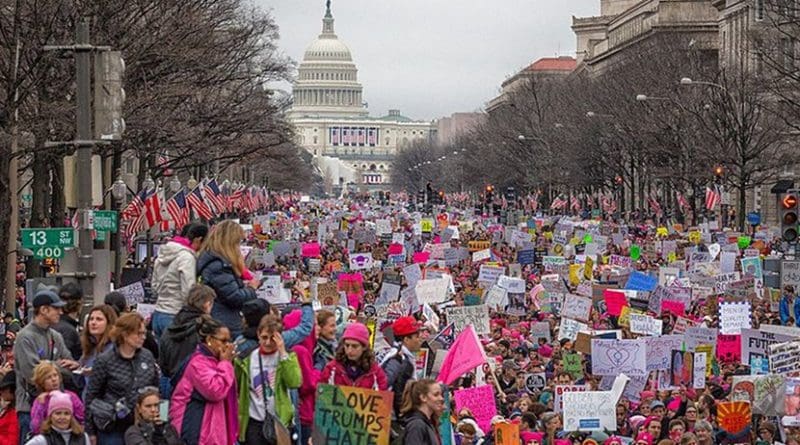Which Countries Lead The Way In Women’s Equality? – OpEd
Fourth-wave feminism, with its focus on intersectional issues and justice for women, is defined by social media use, making it accessible to everyone around the world. Regardless of their location, people can publicly show support for women, easily share their personal stories online, and do their best to battle sexism.
Because this is now a truly global movement, it begs the question: Which countries lead the way in women’s equality, and which can do better?
Different parts of the world have their own beliefs about women’s equality, so determining a universal measure is difficult. For the sake of this article, we’ll take a look at just a few of many important factors to think about when examining women’s equality worldwide. Here are some of the countries who lead the way in women’s equality and a few that need to catch up:
Leading Countries
Iceland
For almost a decade straight, the Global Gender Gap Report has ranked Iceland first for gender equality. They have the smallest gender gap in the world. Two women have held the position of Prime Minister — one of whom was the first openly gay person elected as head of government in history — and Iceland has the highest percentage of female political empowerment in the world. The Icelandic government has even pledged to end the wage gap by 2022. They have a long history of striving for gender equality that has continued to influence their political and social climate today.
Rwanda
Rwanda has slowly but surely become a more progressive country for women’s equality. After the 1994 genocide devastated the population, women had to step into positions previously held only by men. Women are equally represented at virtually all levels of government, from the Supreme Court to Parliament to positions at sub-national levels of government. There are other legal and institutional protections in place, such as imposing harsh consequences for rape and banning domestic violence. However, despite these protections, many women report a social climate that doesn’t reflect the legislation in place. Social attitudes must change and shift the focus of feminism in Rwanda from what women can do for their country to individual needs.
Straggling Countries
The United States
The United States has been thought of as a country of opportunity for all, but in many ways, including gender equality, that is not the case. Legal and institutional protections are in place, but socially, women are not treated the same way as men. Ohio University notes that though women make up half of the workforce in the U.S., they only hold 16 percent of executive positions. According to a recent study from Earnest, a gender wage gap exists in jobs across all levels of experience, from managerial roles to servers. Women also fight to have their voices heard in politics and to enter the political sphere as elected officials. By accessing high-power economic and political positions, women in the U.S. have the chance to influence greater change across the country.
Yemen
Yemen has been ranked consistently as one of the worst countries in the world for gender equality. Women in Yemen face social and institutional inequality at almost every level. They are purposefully excluded from education, politics, and economic activities. When there is legislation in place protecting women’s rights to education or access to justice, they often go unenforced. Women of all ages experience sexual, physical, and psychological violence, especially in poor, rural areas. Cultural attitudes of both men and women alike must shift in order to close the gender gap and correct institutional injustices.
Papua New Guinea
Papua New Guinea is believed to be one of the worst places in the world for gender violence. The percentage of women who have experienced physical and sexual violence at the hands of men is staggering: 67 percent have experienced domestic abuse, over 50 percent have been sexually assaulted, and over 90 percent of women and girls have faced some form of violence when attempting to access public transport. Women who have experienced gender violence face a severe lack of resources for them to seek counsel and justice. Because of this, UN Women has declared Papua New Guinea a priority country for advancing gender equality.
Women’s equality has come a long way, but it still has a long way to go. The Global Gender Gap Report states that the overall global gender gap can be closed in exactly 100 years, if current trends continue. However, they also note that the gap is widening; in 2016, it could have been closed in 83 years. There is no easy fix for this issue, as each region of the world has different needs. Maintaining a nuanced understanding of worldwide gender equality is the only way to find a long-lasting solution.
*Avery T. Phillips is a freelance human being with too much to say. She loves nature and examining human interactions with the world. Comment or tweet her @a_taylorian with any questions or suggestions.

